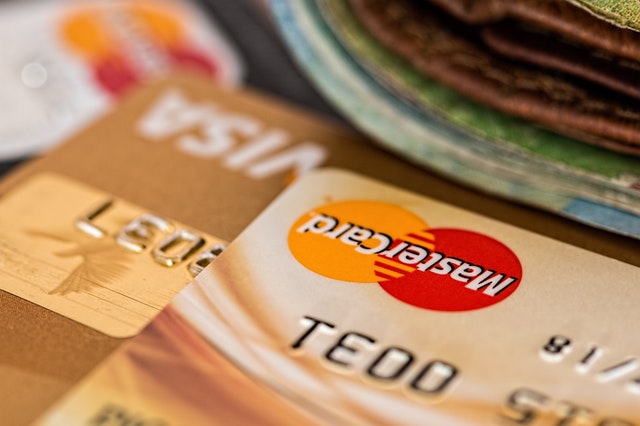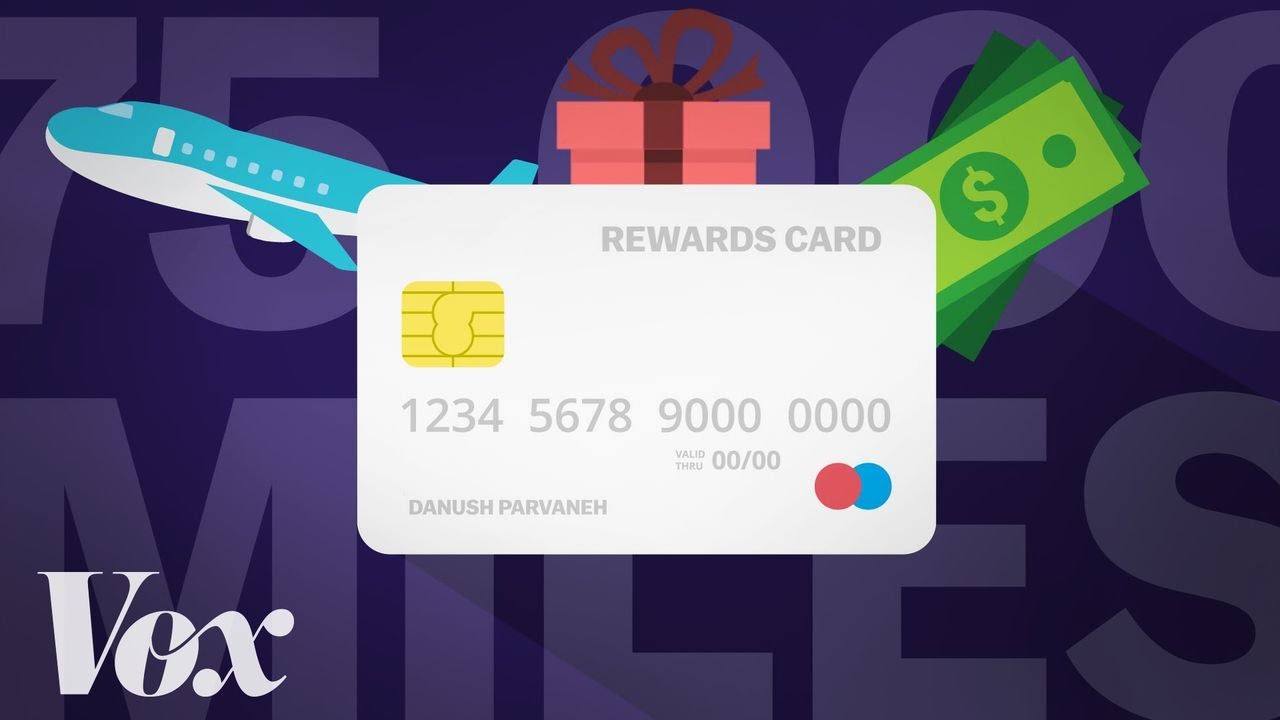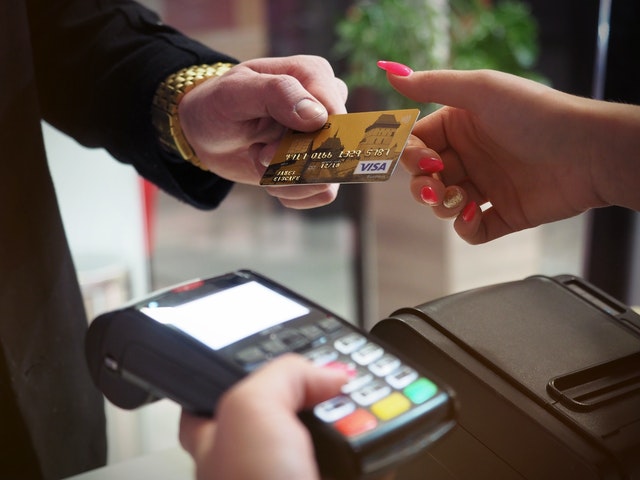Keep Charging: Ways Credit Cards Rake In Big Bucks
Those plastic cards that people call credit cards always mean business on any average day. First introduced in America in the 1920s, today’s top four biggest credit card networks are (in decreasing order) Visa, MasterCard, American Express, and Discover.
Author:Dexter CookeReviewer:Hajra ShannonNov 25, 20217.3K Shares245.5K Views

Those plastic cards that people call credit cards – just a little bigger than the average business card – always mean business on any average day.
First introduced in America in the 1920s, according to Britannica, today’s top four biggest credit card networks are (in decreasing order) Visa, MasterCard, American Express, and Discover, per a January 2021 Business Insider report.
Learn what makes credit cards – informally referred to as plastic – flourish monetarily.

Who actually pays for your credit card rewards?
How Credit Cards Make Money

That’s the straightforward title of Patrick McKenzie’s article about the things that make credit cards earn money.
McKenzie, a Tokyo-based American software engineer and marketer, shared the information in his blog, Kalzumeus. The Las Vegas-registered Kalzumeus Software, LLC he founded in 2013 sells software and offers software-related consulting services.
The ubiquitous credit cards make money through the following, as identified by McKenzie:
Fees
They come in two general categories: usage-based fees and account fees, McKenzie said. Credit card issuers – banks and credit unions – usually waive usage-based fees mostly for marketing reasons.
Late payment fees and over-the-limit fees, according to McKenzie, are the two common types of fees. In the past years, however, McKenzie noted that as credit card usage became better, their contributions to the revenue of credit card issuers and networks lessened. Interactive Voice Response (IVR) systems and certain mobile apps, as cited by McKenzie, have aided cardholders over the years in improving their usage.
Interchange
For each credit card and debit card transaction, the merchant pays a compulsory fee, tells financial website Investopedia. That required payment is the interchange rate. Investopedia shares its other name: “’swipe fees.’” Every time cardholders swipe their credit/debit card, merchants pay.

Net Interest
The U.S. Consumer Financial Protection Bureau revealed that issuers get the bulk of their revenue from interest payments, according to finance company NerdWallet.
Marketing Contributions
McKenzie explained that credit cards act as “channel(s)” that affect consumer buying behavior. Such happens through what credit cards call rewards programs, aka partner rewards programs or loyalty programs.
One example: Cardlytics. Describing itself on LinkedIn as an “advertising platform in banks’ digital channels,” Cardlytics facilitates rewards programs. In 2020 alone, McKenzie said Cardlytics paid banks – issuers – over $100 million.
To Charge, Or Not To Charge, That Is The Question
Concerning interchange, in Hacker News, user “treyfitty” mentioned the landmark case won by American Express (AmEx) in 2018.
In “Ohio, et al. v. American Express Co., et al.,” the U.S. Supreme Court ordered AmEx to continue upholding its current business model (which involves interchange) as it “has increased the quality and quantity of credit‑card transactions,” according to Cravath, Swaine & Moore, AmEx’s counsel.
The case tackled how merchants should not discourage consumers/clients from using credit cards (and, instead opt for cash payments).
User “discreteevent” said that it’s a “scam” for AmEx to require merchants not to dissuade consumers from using credit cards. Merchants, added user “discreteevent,” should encourage cash payments.
User “TorKlingberg” shared that for minor purchases, sometimes small businesses won’t accept credit cards because of the interchange rates.
User “fma,” a male brick-and-mortar business owner in America, said that when clients use their credit cards, in the 3% transaction fee involved, he, as the merchant, shoulders the 1%. He estimated that 15% of his clients are OK with the said transaction fee.
User “nobody9999” is aware of the predicaments of small retailers like user “fma,” which prompts user “nobody9999” to use cash for most in-person payments.
On the other hand, user “dantheman” said that there are also merchants who prefer credit cards because cash payments incur costs, too. User “hnburnsy” agrees and mentions bank deposit charge as one of the costs of cash handling.
Merchants should be aware that cash handling can cost “4.7% . . . to over 15% of cash,” according to Tennessee-based global research company IHL Group.
Dublin-based credit reporting agency Experian explained that credit card networks basically earn from the merchants through interchange. Credit card issuers earn from the consumers/cardholders through fees and interest.
AmEx both functions as a network and as an issuer.
Consumer resource website ValuePenguin shared that based on a 2019 annual report data from banks, AmEx, as an issuer, earned over $8.6 billion from interest payments. As a network, more than $4 billion from interchange.
Conclusion
Whether consumers and merchants favor credit cards, it seems this particular plastic is here to stay.
Data gathered from 2017 disclosed that AmEx had 62.7 million active cardholder accounts, according to ValuePenguin. From interchange fees, AmEx earned $60.43 from each cardholder account.
Do the math and you'll know how much money AmEx profited from interchange fees alone in 2017. It's only but a fraction of the total amount of money AmEx – and all the other credit cards – make in any given year.

Dexter Cooke
Author
Dexter Cooke is an economist, marketing strategist, and orthopedic surgeon with over 20 years of experience crafting compelling narratives that resonate worldwide.
He holds a Journalism degree from Columbia University, an Economics background from Yale University, and a medical degree with a postdoctoral fellowship in orthopedic medicine from the Medical University of South Carolina.
Dexter’s insights into media, economics, and marketing shine through his prolific contributions to respected publications and advisory roles for influential organizations.
As an orthopedic surgeon specializing in minimally invasive knee replacement surgery and laparoscopic procedures, Dexter prioritizes patient care above all.
Outside his professional pursuits, Dexter enjoys collecting vintage watches, studying ancient civilizations, learning about astronomy, and participating in charity runs.

Hajra Shannon
Reviewer
Hajra Shannona is a highly experienced journalist with over 9 years of expertise in news writing, investigative reporting, and political analysis.
She holds a Bachelor's degree in Journalism from Columbia University and has contributed to reputable publications focusing on global affairs, human rights, and environmental sustainability.
Hajra's authoritative voice and trustworthy reporting reflect her commitment to delivering insightful news content.
Beyond journalism, she enjoys exploring new cultures through travel and pursuing outdoor photography
Latest Articles
Popular Articles
